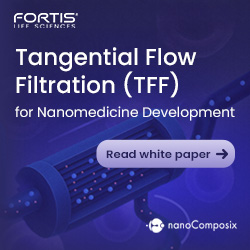Vaxart’s S-Only COVID-19 Vaccine Candidate Produces Strong-Cross Reactive Mucosal & Systemic Immune Responses in Non-Human Primates
A new study published on BioRxiv.org demonstrates that Vaxart’s S-only COVID-19 clinical vaccine candidate, now being studied by Vaxart in Phase 2 trials, generated antibodies to the original COVID-19 virus strain and to the beta, delta, alpha and gamma variants of SARS-CoV-2 in the serum and nasal mucosa of non-human primates (NHPs).
The NHP results also showed that Vaxart’s S-only vaccine candidate not only produced similar serum antibody (IgG) responses to other vaccines evaluated in NHP studies, but also produced significantly elevated mucosal IgA antibody responses after a single dose of the Vaxart vaccine.
The vaccine was cross-reactive – inducing antibodies to all four of the major variants of concern studied — with IgA increases of over 1,000-fold observed. Nasal IgA antibodies have been shown to be more effective at blocking transmission than serum IgG. The mucosa is where viral entry and primary infections occur in NHPs and humans.
“The data we collected is important for two very significant reasons,” said Dr. Sean Tucker, Vaxart’s Chief Scientific Officer, and the senior author of the study. “First, the data suggests Vaxart’s S-only COVID-19 clinical candidate may be able to induce cross-protective antibodies at the site of infection, the mucosa. These antibodies are only minimally induced in currently authorized vaccines and may be key to protecting against new variants.
“The existing approved COVID-19 vaccines produce substantial serum antibody responses and are potent against the original COVID-19 virus strain, but they offer less protection against other variants,” Dr. Tucker said. “The omicron variant, in particular, preferentially replicates in the upper respiratory tract, likely making it less susceptible to serum antibodies.
“Second, we believe our S-only candidate is the first to elicit neutralizing antibody responses in the nasal mucosa of a monkey. We have shown in earlier human studies with our first oral vaccine candidate that potent mucosal responses, including responses in the nose, could be induced,” Dr. Tucker added.
“As a result, our expectation is that this candidate will produce similar results in humans, as well. This mucosal response may also serve to reduce the likelihood of person-to-person transmission. Vaxart’s preclinical studies have shown that mucosal responses can provide better protection against viral shedding and transmission than responses to injectable vaccines,” Dr. Tucker said.
Vaxart began its Phase 2 COVID-19 oral vaccine trials in the US in October 2021. Data is expected in the first half of 2022.
The study evaluated three different vaccine candidates:
- VXA-CoV2-1.1-S or ED90, based on the S protein from the SARS-CoV-2 parental strain;
- ED94, matched to the beta variant; and
- ED88, a combination of parental S and N proteins.
Each candidate was administered intranasally to four animals 28 days apart; four other animals received an S protein vaccine via intramuscular injection followed by intranasal administration of ED88. Nasal swab and serum samples were collected at baseline, day 1 and on days 15, 30, 44 and 58 post vaccination from the four test groups, as well as from four unvaccinated control animals.
Key findings from the study include:
- Mucosal administration generated levels of IgG that were similar to data reported for other SARS-CoV-2 vaccines.
- Vaxart’s S-only vaccine, clinical candidate VXA-CoV2-1.1-S, induced the most potent antibody response of the three candidates tested, generating substantial nasal IgA and serum IgG to multiple variants.
- While ED94 generated the highest IgG responses to the matched beta variant, it was less cross-reactive against other variants compared with VXA-CoV2-1.1-S.
- VXA-CoV2-1.1-S induced cross-reactive serum and nasal antibodies to multiple variants and elicited the highest neutralizing antibody responses to the Wuhan and delta variant, compared with ED94 and ED88.
- ED88 produced less robust IgG and IgA responses than the other adenoviral candidates.
Vaxart is a clinical-stage biotechnology company developing a range of oral recombinant vaccines based on its proprietary delivery platform. Vaxart vaccines are designed to be administered using tablets that can be stored and shipped without refrigeration and eliminate the risk of needle-stick injury. Vaxart believes that its proprietary tablet vaccine delivery platform is suitable to deliver recombinant vaccines, positioning the company to develop oral versions of currently marketed vaccines and to design recombinant vaccines for new indications. Vaxart’s development programs currently include tablet vaccines designed to protect against coronavirus, norovirus, seasonal influenza, and respiratory syncytial virus (RSV), as well as a therapeutic vaccine for human papillomavirus (HPV), Vaxart’s first immune-oncology indication. Vaxart has filed broad domestic and international patent applications covering its proprietary technology and creations for oral vaccination using adenovirus and TLR3 agonists.
Total Page Views: 1309














